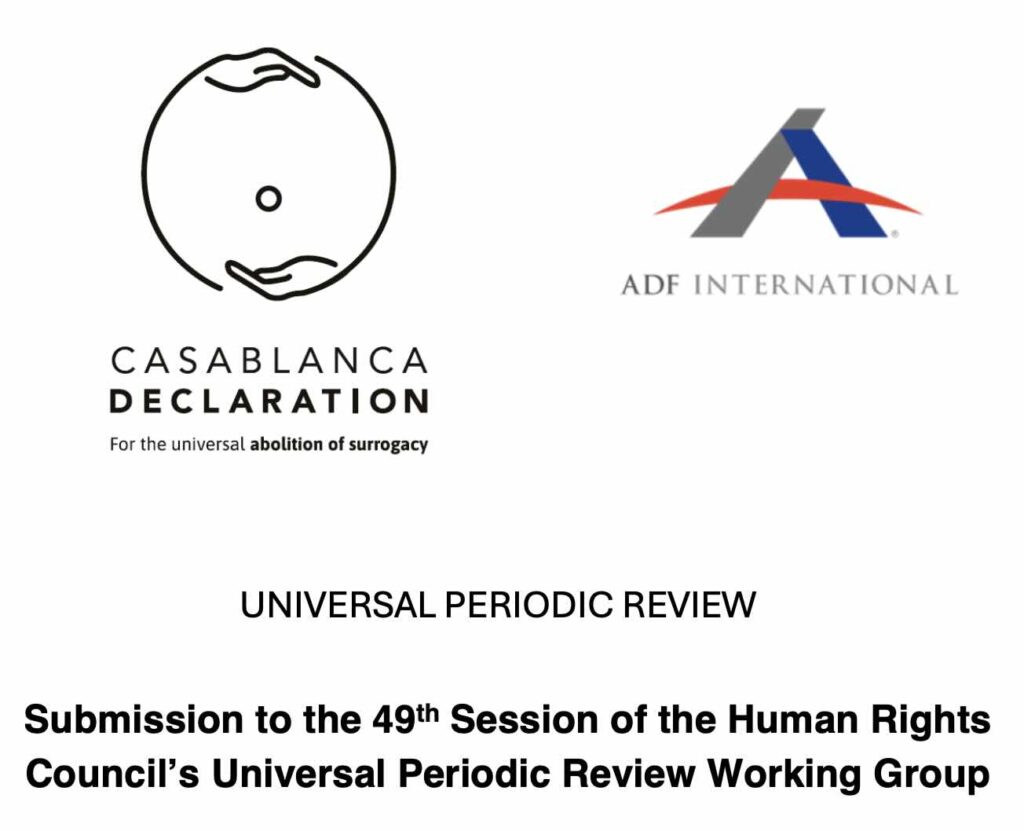| Press release October 15, 2024
Casablanca Declaration submitted a joint stakeholders report with ADF International for the 49th Session of the Human Rights Council’s Universal Periodic Review, outlining how Armenia’s legalization of surrogacy undermines its international obligations regarding the rights of children and women under various international human rights instruments. It highlights the detrimental impact of this harmful practice on the health of surrogate mothers and children. Casablanca Declaration is an international organization that protects women and children from the surrogacy market and promotes an international treaty to abolish surrogacy worldwide. ADF International is a faith-based legal advocacy organization that protects fundamental freedoms and promotes the inherent dignity of all people. The Universal Periodic Review (UPR) is a mechanism of the Human Rights Council aimed at examining and improving the human rights record of each UN Member State. It operates on a roughly four-and-a-half-year cycle, providing a platform to address shortcomings in the implementation by states of their human rights obligations. In practical terms, it is a powerful tool to bring international attention to specific human rights situations and to generate political commitments by the government to address them. The UPR is a state-driven, peer-review mechanism, under which states receive recommendations from – and make recommendations to – other states. After receiving recommendations, countries under review can accept or “note” (reject) them, thereby creating political commitments to implementing supported recommendations. Although the UPR is a state-driven process, civil society organizations play a critical role in raising awareness about the ongoing human rights challenges in each State under review, as well as in following up on the implementation of the recommendations received. NGOs are encouraged to submit reports on specific countries because they have sources on the ground in those countries and/or have expertise in various areas of international human rights law. NGOs can submit individual or joint reports on specific human rights issues, which are then distributed to States through the UN system, as well as through direct advocacy efforts. The aim is to inform and persuade States to raise these issues during the review and make strong recommendations accordingly. |
Link to the Joint submission by Casablanca Declaration and ADF International: click on the image below

